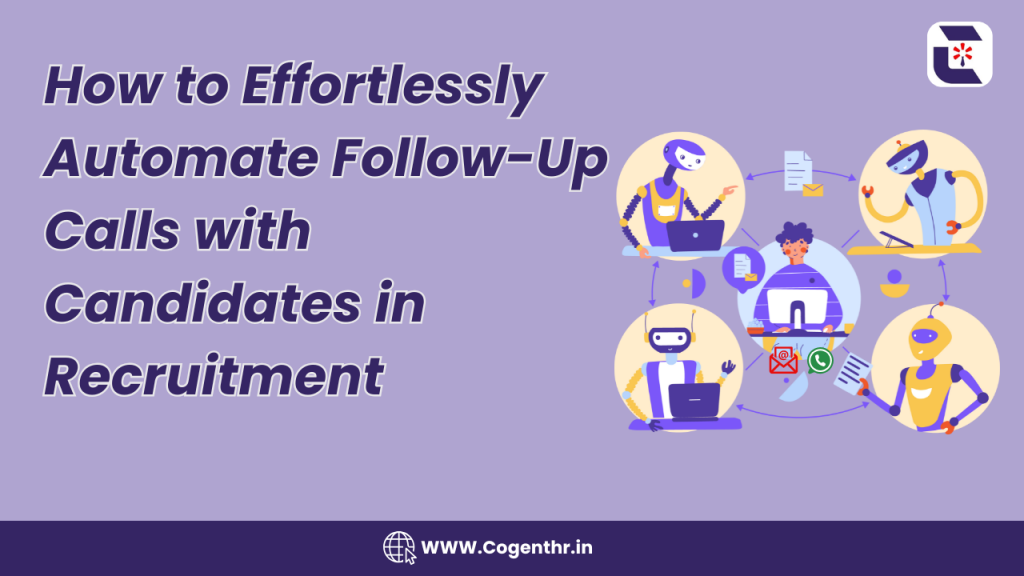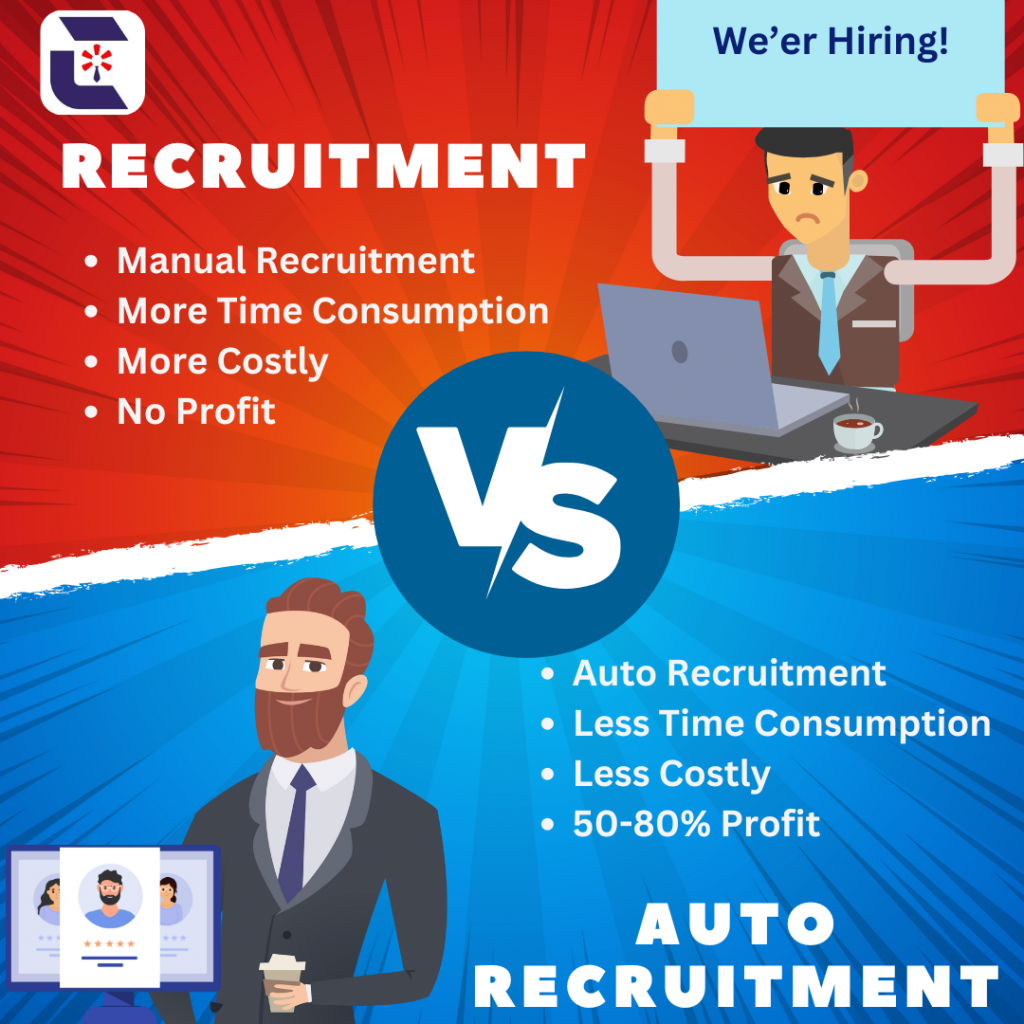Recruiters often find themselves caught in the time-consuming cycle of manually following up with candidates. Missed calls, delayed responses, and repetitive reminders can result in frustration, reduced candidate engagement, and missed opportunities. In today’s competitive hiring landscape, timely and effective follow-ups are essential for maintaining a strong connection with candidates.
Automation emerges as the ultimate solution to this problem. By leveraging innovative technology, recruiters can Automate Follow-Up Calls, save time, and ensure consistent communication. In this blog, we’ll explore why follow-up calls matter, the challenges of manual hiring processes, and how automation can revolutionize your recruitment strategy. With the right Software, you can create a seamless and efficient process that leaves both recruiters and candidates feeling empowered.

Why Follow-Up Calls Matter in Recruitment
Follow-up calls are a crucial component of the recruitment process. They help bridge the gap between recruiters and candidates, ensuring clear communication and building trust.
- Building Trust and Engagement: A well-timed follow-up call shows candidates that you value their time and are genuinely interested in their potential. This build trust and strengthens your relationship with them.
- Improved Candidate Experience: Timely communication is one of the pillars of a positive candidate experience. When candidates are kept informed about their application status, they are more likely to have a favorable trust of your company.
- Avoiding Delays and Missed Opportunities: Delayed follow-ups can lead to disengagement, where candidates might lose interest or accept offers from competitors. Consistent follow-ups help recruiters stay top of mind for candidates.
Challenges of Manual Follow-Up Calls
While follow-up calls are important, managing them manually comes with significant challenges:
- Time-Consuming and Resource-Intensive: Manually tracking and calling every candidate, especially during high-volume recruitment, can waste a recruiter’s time and energy.
- Risk of Human Error: It’s easy to forget to call certain candidates or mix up follow-up schedules, which can negatively impact the hiring process and relationship with candidates.
- Difficulty in Scaling: As the number of candidates increases, maintaining consistent follow-ups becomes nearly impossible without the help of technology.
Benefits of Automate Follow-Up Calls
Automate follow-up calls offers a wide range of benefits that address the challenges of manual processes:
- Time Savings: Automation eliminates repetitive tasks, freeing up recruiters to focus on strategic activities like interviewing and candidate evaluation.
- Consistency: Automated systems ensure that no candidate is left waiting or forgotten, maintaining timely communication throughout the recruitment process.
- Enhanced Candidate Experience: Automation allows for professional, and personalized follow-ups, which improve how candidates perceive your company.
Steps to Automate Follow-Up Calls
Here’s how to start automate follow-up calls in your recruitment process:
- Step 1: Evaluate Your Recruitment Workflow
Identify repetitive tasks and bottlenecks in your current process. Pinpoint where manual follow-ups are slowing things down and determine the areas where automation can have the greatest impact. - Step 2: Choose the Right Recruitment Software
Select a recruitment platform that offers Fast automation features. Look for tools that integrate with your existing systems and provide features like call scheduling, reminders, and take personalized test assessment’s for Filtering unqualified candidates. - Step 3: Set Up Templates and Workflows
Create automated workflows with predefined templates for follow-up calls. These templates should include personalization options to address candidates by name and reference specific details about their applications. - Step 4: Personalize Messaging
Even with automation, personalization is key. Use data from your ATS (Applicant Tracking System) to tailor messages to each candidate’s stage in the hiring process. - Step 5: Integrate with Your ATS
Ensure that your automation tools are seamlessly integrated with your ATS. This allows for synchronized candidate data and smoother communication processes.
Top Tools for Automating Follow-Up Calls in Recruitment
Several recruitment software solutions can help automate follow-up calls. Here are some popular options:
- Cogent Solutions: An all-in-one recruitment software with advanced automation features for follow-ups, personalized personalized test assessment’s for Filtering unqualified candidates.
- HubSpot CRM: Known for its robust automation workflows, HubSpot CRM offers tools to manage candidate communication efficiently.
- Calendly: While primarily a scheduling tool, Calendly’s integrations can automate reminders and follow-ups for interview scheduling.
Each tool offers unique benefits, so it’s important to choose one that aligns with your recruitment needs.

Case Study: Automation Success Story
Company A, a mid-sized IT firm, struggled with high candidate dropout rates due to delayed follow-ups. After implementing Cogent Solutions’ recruitment software, they automated follow-up calls, overall hiring process and easily integrated them with their Software.
- Results: Reduced time-to-hire by 60% and improved candidate engagement by 45%. Candidates reported a smoother and more professional recruitment experience.
Potential Pitfalls and How to Avoid Them
While automation offers numerous benefits, there are some pitfalls to watch out for:
- Over-Reliance on Automation: Too much automation can make candidates feel disconnected. Always include opportunities for human interaction.
- Poorly Configured Workflows: Inaccurate or irrelevant workflows can frustrate candidates. Test workflows thoroughly before implementation.
- Lack of Monitoring: Regularly monitor automated processes to ensure they are functioning as intended and making a positive impact.
Conclusion
Automating follow-up calls is a powerful way to streamline recruitment processes, save time, and enhance candidate engagement. By integrating the right tools and following best practices, recruiters can focus on what truly matters – finding the best talent.
Ready to transform your recruitment process? Learn how Cogent Solutions can help you automate follow-ups and take your hiring strategy to the next level. Book Demo…